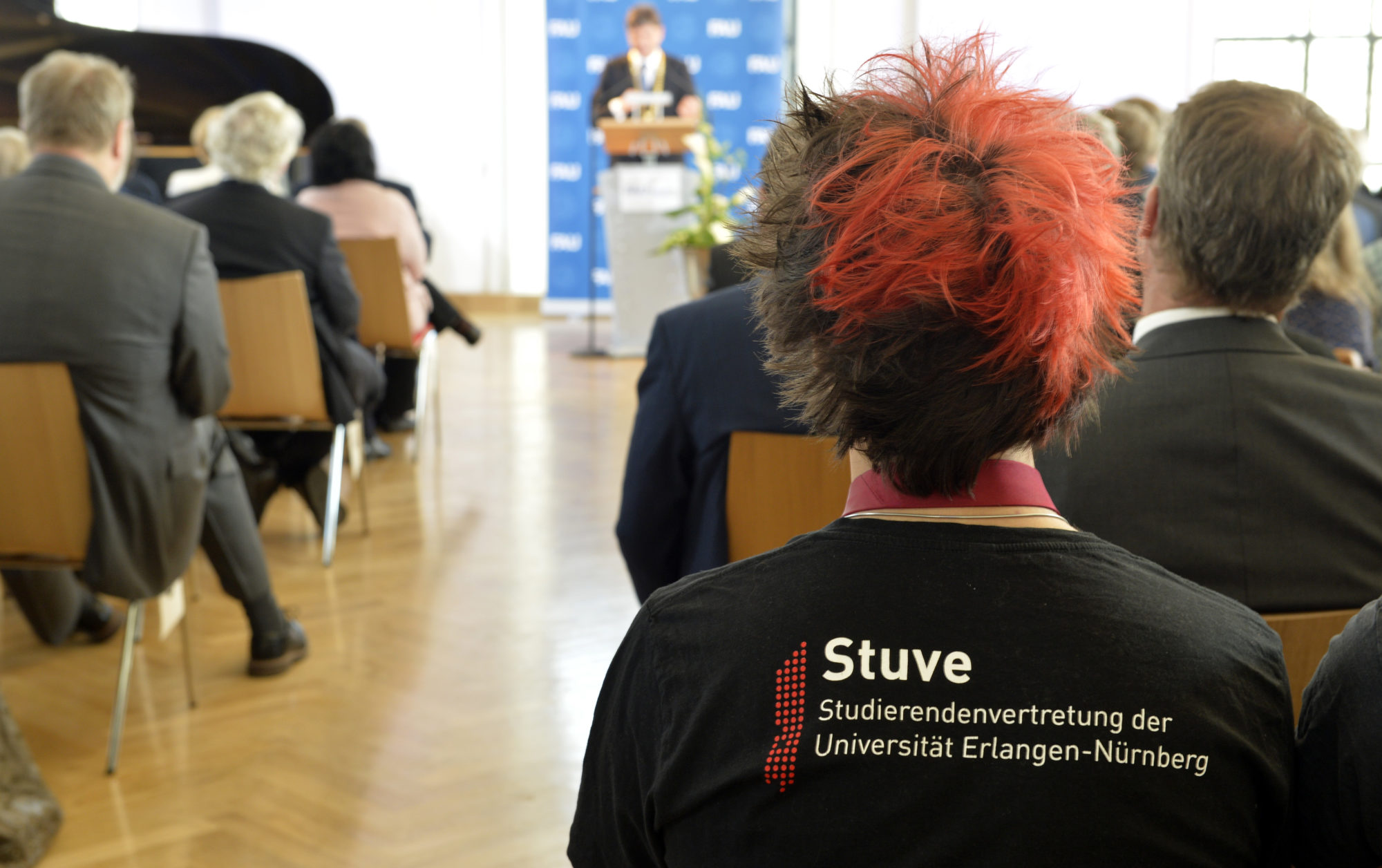Dear Students,
In the following text you will find the public statement of the Speaker’s Council on the 2G rule at FAU. The student council has not yet taken a position on this issue, but may do so in a future meeting.
Given soaring Covid cases and the associated ever-increasing strain on the public health system, the FAU Erlangen-Nürnberg has, under the guidance of medical professionals, board members of the Covid crisis team and student representatives, made the decision to implement 2G in place of the existing 3G regulations.
The vast majority of severe Covid cases requiring intensive care are attributable to unvaccinated individuals, without a history of infection (as can be clearly observed in Erlangen’s university clinic). Furthermore, vaccinated individuals or those with acquired immunity do not significantly contribute to the worsening pandemic. In light of the aforementioned information, it can be reasoned that 2G regulations reduce the risk of infection, thus enabling the continued implementation of face-to-face teaching formats while ensuring the safety of individuals attending such events. We recognise the importance of equal access to education and patient autonomy.
Given the recent nature of the decision, a public position has not yet been adopted by the student convention. That being said, the speaker’s council supports the implementation of 2G regulations in light of the current severity of the Covid pandemic.
As of late, the speaker’s council has received a multitude of emails from students, concerned for their wellbeing, many of which support the implementation of stricter measures. Unfortunately, we have also been inundated with appallingly inappropriate emails, messages, social media posts and open letters of violent nature, drawing comparisons between 2G and fascism or the holocaust.
Encouragingly, notice of the measures appears to have increased vaccination rates within the student populous. Furthermore, newly arising online alternatives clearly benefit at-risk individuals who are denied attendance to lectures, seminars etc. ie. pregnant individuals.
In closing, we wholeheartedly support the universities decision to introduce 2G regulations and are disheartened by the ensuing and exceptionally polarising debate. Such an appropriate measure, designed to protect not only our health but the health of our most vulnerable individuals, ought to unite us, not create a rift in society.

